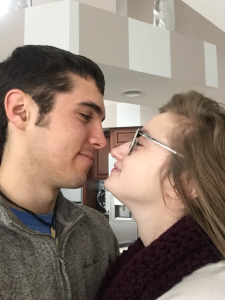I don’t think it’s a secret that the medical establishment in the United States has a long history of abuse: racism, sexism, homophobia, transphobia, reproductive governance, coercion, etc… the list goes on. As a science major and future public health professional, I find it my responsibility to understand the history of these abuses and learn from them to make access to and quality of healthcare better for all.
Generally speaking, the healthcare system in the United States is very good at treating illnesses; we are very good at providing care to people that are sick. We are not, however, very good at preventing illness. Partly, I think, because of our culture of gratification, but partly because we lack a large-scale, foundational value and understanding of upstream causes and solutions to health disparities—an understanding that is, I believe, necessarily rooted in intersectional feminism.
As I mentioned earlier, I am a future public health professional. Many may think public health and medicine mean the same thing, but in actuality they are very different. Public health, as opposed to the medical institution as a whole, works to create systems that prevent people from becoming sick and promote healthy living behaviors. Drawing from community-driven research, public health professionals advocate for legislation, resources, and environments that ensure the health of our most vulnerable citizens to our most privileged. It is, in my opinion, the area of health that most openly embraces upstream solutions to health disparities.
But why is this not a common thread amongst all health professionals, not just public health professionals? And how does intersectional feminism fit into all of this?
I’m not sure that I have a definitive answer for the first question. Possibly because public health does not have as long of a history as the medical establishment as a whole, and as such has been influenced by contemporary movements rooted in interdisciplinary science. Possibly because, like most things in life, it is male-dominated J. I do have an answer to the second-question, though: intersectional feminism is a framework for addressing disparities of all kinds as the result of complex distributions of power and intersecting identities.
Much like everything else in life, a person’s health is not determined by a single factor. Instead, it is a combination of things like zip code, racial identity, age, exposure to environmental toxins, education level, psychological stress imposed by racism or sexism, health literacy, connection to community, etc. Why, then, do we largely create and evaluate systems based on the false assumption that a person’s health is merely determined by exposure to germs or genetics? Because health professionals lack the social justice and analytical tool of intersectionality. Because health professionals lack the critical sociological lens of feminism. Because we assume we are done, but we can always do more.
Let’s take maternal and child health for example. Besides being the coolest population in public health (maybe I’m biased), it is one of the fields of medicine where intersectional feminism is most crucial. By a conflation of gendered, racialized, and classed norms, the ways in which society controls the health of populations has typically been through women’s bodies and their conventional roles as custodians of family health and wellbeing. Reproductive responsibility, however, is applied to women of different race and class identities in starkly different ways: white upper class women have historically been urged to reproduce, often against their wishes, while black lower class women have historically been coerced into reproductive measures that remove their biological and autonomous ability to reproduce and create families (for more info, I recommend Googling the history of sterilization abuse and contraceptive use in America).
So, how do we care for people who we assume have the same risks of being “unhealthy”—white women, black women, wealthy women, and impoverished women—when history and culture tell us that they are not? How do we get at the root issues of health disparity when our systems were created to ignore them?
Enter Intersectional Feminism. Our healthcare system is begging for a makeover. We need a lens with which to address and care for the many identities of our patients and our neighbors. We need to live up to the knowledge that health outcomes are affected by a multitude of factors and start treating them as such.
I once wrote after my second semester in WILL: “Feminism is not something I can claim for myself every Monday night from 5-7. It is not something I can throw out in casual conversation or as a line on a resume. It is a lifestyle choice. It is a journey. And I don’t get to choose when I turn it on and off, especially when it is so important to me and so integral to who I am. I need to work towards congruency. No, I want to work towards congruency. I want to be feminist 24/7, I want to let the whole world know who I am and what I value, and I do not want to be afraid.” Growth looks good on me! Here I am, writing about how I can—and need—to bring feminism into my workforce, and I couldn’t be more excited. I am going to let the whole world know about my feminism, I am going to fight for my feminism, and I am going to be all about my feminism, 24/7.
Emma Fox is a 4th year Neurobiology student and a 3rd year WILLer.



